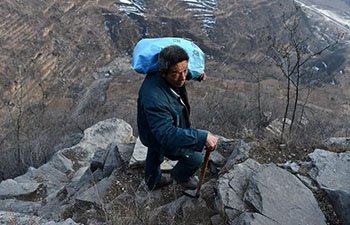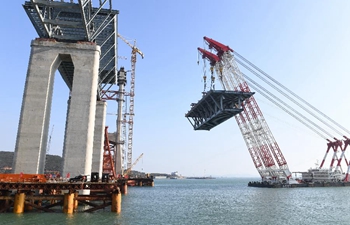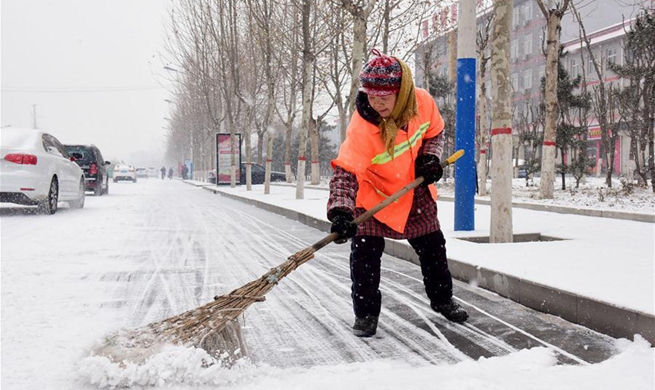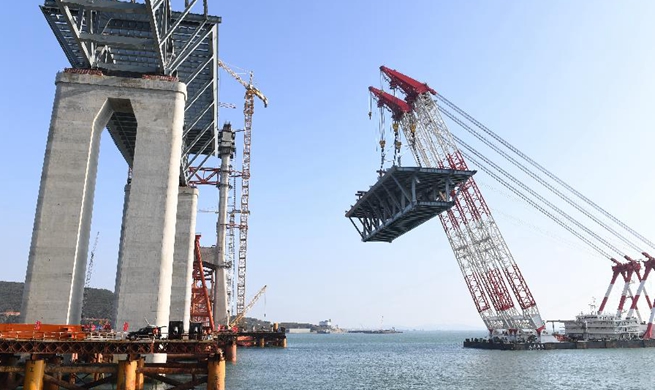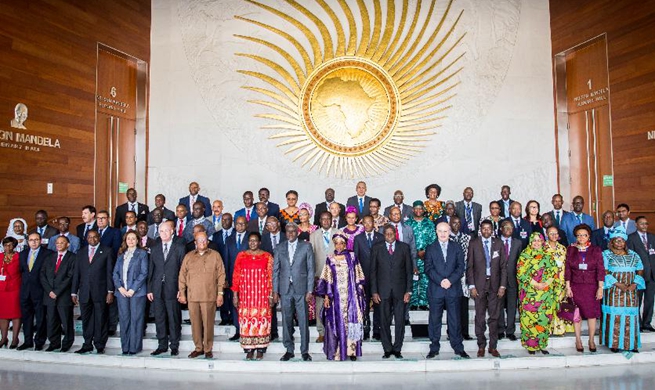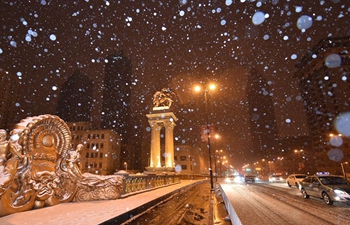GAZA, Jan. 22 (Xinhua) -- A general commercial strike has hit the Gaza Strip on Monday to protest over worsening economic conditions and the decade-long Israeli blockade, amid warnings of an imminent economic collapse.
The owners of commercial establishments and local banks closed their businesses after a call by Palestinian private sector to launch a one-day strike to warn against the deteriorating living conditions in the coastal enclave.
Gaza has been placed under a tight Israeli blockade since Islamic Hamas movement seized the territory after routing forces loyal to President Mahmoud Abbas in 2007.
"This move comes to protest over the economic recession in Gaza," shop owner Mansour Khalaf told Xinhua.
The man said the economic situation is going down rapidly, adding that business owners have been extremely suffering from an acute slump over the past few weeks.
Earlier in the day, representatives of the private sector held a press conference in Gaza during which they warned against a looming economic collapse due to the Israeli embargo imposed on the territory since 2007.
"We are warning, the situation will explode if the blockade is not lifted," said Nabil Abu Mualek, deputy chairman of Gaza Businessmen Association.
"Gaza's economy is collapsing... Workers cannot find bread to feed their families," he pointed out.
Mualek urged the Palestinian government and the international community to seriously pressure Israel to open all Gaza crossings for goods and passengers in order to avoid more deterioration.
According to Gaza Commerce Chamber, unemployment rate in Gaza stands at 46 percent, while the rates of poverty have exceeded 65 percent.
The figures showed that there is a 50-percent increase in household food insecurity in Gaza, while local markets suffer from lack of purchasing power, leading to an acute shortage of cash.
The commercial strike coincided with the United Nations Relief and Works Agency for Palestine Refugees' (UNRWA) decision to launch a funding campaign to face its growing budget deficit.
UNRWA Commissioner-General Pierre Krahenbuhl told reporters in Gaza that the campaign came after the dramatic reduction of aid provided by the United States.
"We are launching this campaign because the dramatic reduction in U.S. funding to UNRWA presents and confronts our agency within unprecedented crisis," he said.
However, Krahenbuhl stressed that UNRWA is determined to continue to contact all donors, including the Palestinians.
He stressed that UNRWA schools and medical services will remain open, adding that it is a big challenge, "but it is an urgent issue that must be continued."
"The Palestinian refugees have suffered for 70 years from the absence of their rights because of the absence of a political solution," he noted.
The UNRWA's campaign came days after the United States decided to cut its fundings to UNRWA in 2018 from 125 million U.S. dollars to 65 million dollars.
The U.S. administration also announced it will not provide the agency with 45 million dollars of aid that it pledged last December.
U.S. President Donald Trump has recently threatened to reduce aid to the Palestinians if they refuse to return to the negotiation table with Israel.
The United States donates annually 364 million dollars to UNRWA, making it the largest sole contributor to the UN agency.
UNRWA, which provides assistance in education, health and food to some 5 million registered Palestinian refugees in the Middle East, is already suffering from a 49-million dollars financial deficit and any fund suspension would have a negative impact on its work.




